CRN Exclusive: 30 Tough
Questions For Michael Dell
by
Tom Spring
on September 2, 2014, 5:15 pm EDT
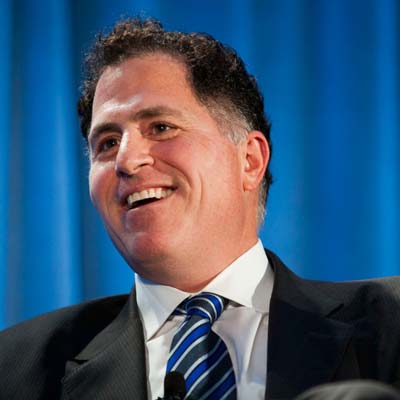 |
Dell On Dell
Michael Dell is fired up. As CEO of
the Round Rock, Texas-based IT powerhouse, Dell, 49, told CRN he
is ready to lead his company into its next chapter. As Dell heads
into year two as a private company, the hard work is under way, he
said.
In an exclusive interview between CRN editors and Michael Dell
at his offices in Building No. 1 on Dell's campus in the heart of
Texas, we heard first-hand how Dell is moving fast to embrace the
channel and take the IT fight to Cisco, Hewlett-Packard and
Lenovo's front doors.
What follows is how Dell says he is
going to change the IT game with the same spirit that inspired a
younger Dell 30 years ago to pioneer the direct PC sales model. |
 |
What has surprised you over
the past year or two as you emphasize the channel more and
transition from a public to a private company?
I'd say, not really a whole lot. I
mean, it's sort of been a continuation of momentum and progress.
We understand that it takes time to build relationships and trust.
The good news is we have been doing
this for a while now. We are seven years in to building the Dell
channel. We have had two pretty great channel milestones in the
past year or so. We have had a number of big guys seriously commit
to us. It started out when they would do some business with us.
And when they would, they'd say, 'We weren't on the website. Don't
tell anybody." They didn't want anyone to know. They were afraid
the bogeyman would come out and get them. Now it's like, 'OK,
whatever.' |
 |
What has surprised you about
the channel as you emphasize it more in your business? It's
clearly not a side game.
It's a love affair. (laughing) It's
all in full bloom.
I'm getting appreciation notes and
love notes. All of them unsolicited. You know before it was like,
'OK, thanks. Seems to be working well.' Now it's, 'We love you
guys. It's so great. It's fantastic.'
They are all in. |
 |
Do you credit your channel
gains to executing better with the channel?
Yes.
Who is the fastest-growing big
company in the channel right now? What's the fastest-growing large
end-to-end IT company in the world right now? There is Dell and
Oracle, IBM, HP and Cisco. We are growing faster than all of them. |
 |
Do you see the channel
overtaking the direct side of the house at some point in the
not-too-distant future if it's growing that fast? Is it a slow
march to take over direct?
The channel absolutely could
overtake direct. I mean, we have countries where that's the case
now.
But 'slow' is not a word I would
associate with Dell. It's not slow. |
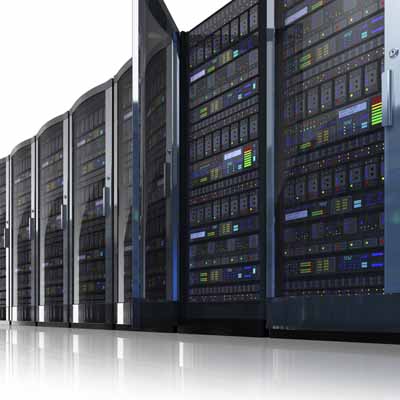 |
What kind of investments are
we going to see channel technology-wise in 2014 and 2015?
Let me start on the product side. We
have picked up the pace of new product introductions and are
rolling out a lot improvements to existing product lines. We have
our new 13G version of PowerEdge coming out very soon.
We are also investing heavily in
data center.
We are big believers in lots of
different descriptions for converged infrastructure, such as
network functions virtualization or software-defined networking.
We see software-defined everything as a big new opportunity.
Think about today's data center
where you have a proliferation of appliances. There are appliances
for network, for authentication, security, encryption, routing and
whatever. Those appliances are increasingly becoming applications
that run on a virtual machine. And the anchor tenant for where
those virtual machines run is a server. |
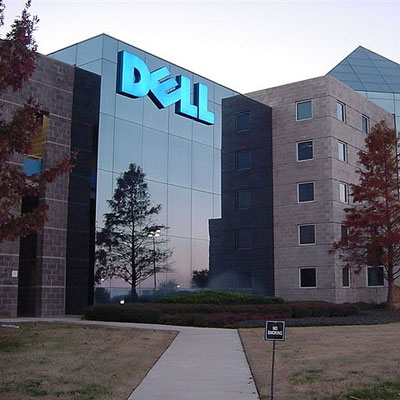 |
Partners are starting to make
significant bets with primary vendors. Partners have to invest so
much in selling up and down the stack. Why should partners do more
business with Dell than with Cisco, HP or Lenovo?
In North America, the strength of our
brand and the appeal isn't in question.
While we have had enormous
progress, we are definitely not overdistributed -- as so many of
these other guys you are talking about are. We don't want to get
overdistributed.
I think we have a history of
innovating, and we'll continue to do that across servers and
clients. And we are absolutely committed to those business.
I don't want to sound relaxed about
it, but the results speak for themselves. With the results we are
achieving, we don't need to be too hyperbolic about it. What we
are doing is working. Partners are giving us great feedback. |
 |
How has being a private
company helped Dell in the past year?
You know, one of the great things
about being a private company is that we get to think about the
business differently.
When you are a public company, what
happens is decisions are impacted -- sometimes in small ways and
sometimes large ways. People think about how's this or that going
to affect the next time we report earnings results in 58 or 89
days. That could be good thing, but generally it adds up to not so
great. What you get is a lot of short-term-minded activity.
So now we have the real privilege
of thinking about our business over a longer period of time. As we
have done that, we have been growing faster. Our cash flow is very
strong. We're investing in all of our businesses. |
 |
Cisco is 80 percent channel
and HP is 75 percent. Dell is about 33 percent channel. Does
Dell's direct and channel mix give you an advantage with the
partners out there because you have what you call an 'omnichannel'
approach?
We have heard time and time again
from channel partners that as we have invested with them, they've
invested in us.
Dell can leverage its inside sales
with the channel. The direct side of Dell can leverage an existing
presence with specific accounts or an account it has had a
longtime relationship with selling PCs. Dell knows these customers
and is selling into new product areas with these customers.
Now, as Dell has learned what a
partner's skills are we can increase the line of business by
bringing in a channel partner. Maybe there is a great channel
partner out there that is really good at data center or security.
So Dell aligns with them. Sometimes partners bring Dell in.
That's happening on a
minute-by-minute basis and bringing tens of millions of dollars of
new business to us. So that's not an idea or a dream. This is
going on right now. |
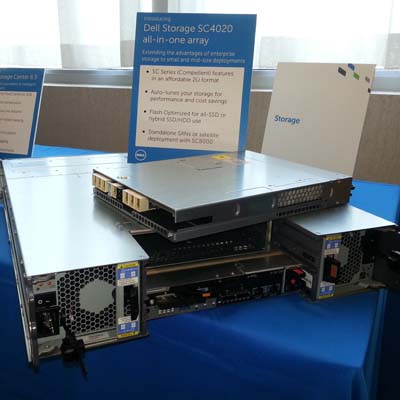 |
Are there areas where you are
telling partners,'We are going to be there. We are going to be the
strongest supplier out there of this specific technology. If you
want to make some money, let's go down this particular path
together?' The big
ones are pretty obvious. It's the server and it's the client [PC].
Those are still enormous businesses. We are investing in them.
Closely attached to the server is
storage. We have had great growth on Compellent. The SC4020 array
is super-hot right now. Storage is extremely well positioned to
grow.
On the networking front, we are all
in. With the whole software-defined networking [segment], we are
very differentiated from other guys. We are seeing strong growth
in that space.
On the security side, we have very
strong capabilities, including networking security, encryption and
detection. That's a fast-growing area, along with backup and
protection. Of course, when you talk about the channel there isn't
just one area. |
 |
How do you see Dell
evolving? Partners we talk to say they are selling more services
and getting more traction when it comes to recurring revenue.
How do you stay relevant with those guys?
You have to build new solutions that
enable them to stand up whatever services they are providing,
whether it’s a managed service provider or an infrastructure
partner. The dynamic evolution of the industry absolutely
continues and we need to keep pace with that.
I do think this change in the
data center, to software-defined, is going at a pretty fast
pace. There could be a lot of dislocation there, in terms of
companies that are particularly focused on one slice of the data
center or one appliance area. When those things become virtual
machines that run in a more converged type of stack, whether
it's an on-premise cloud, they run the risk of dislocation.
|
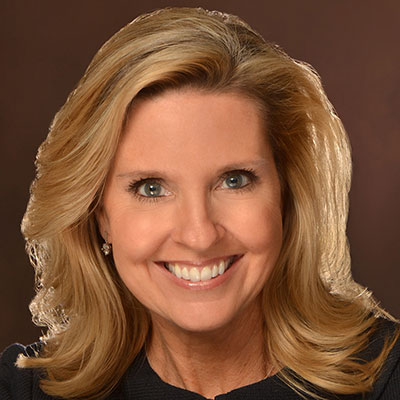 |
What is the commitment to
partners in terms of investing to grow the Dell channel?
It's big. It's really big.
The investment in the channel is
tied to the growth. Right now growth is very strong. Our focus is
on training and how do we get more certified partners selling more
deeply and across more product lines. How do we link more partners
with our direct inside teams? How do we get them to utilize more
of the resources we have in terms of tools such as Dell Financial
Services?
Look, we still have a lot of
opportunities for partners. We have partners that maybe don't know
all the things that Dell has to offer their customers. How do we
get in front of those partners? [Vice President of Global Chanel
Alliances] Cheryl Cook [pictured] and her team do a large number
of events. I go to a pretty large number of events. Probably every
two weeks I'm at a partner event of some kind somewhere around the
world. |
 |
Is the channel a hot area at
Dell these days? Is it an area Dell employees want to work in
because it has a lot of momentum?
Yeah, I think so. What I would tell
you is that we don't want a distinction between channel and
non-channel anymore. Three or four years ago we had the channel
part of the company and the non-channel part of the company. Now
we just have the company.
It's not as much of, 'You are
channel people and you are not channel people.' It's like we are
all Dell people. Now go make it happen. And you know -- like I
said -- it's all a big love affair with the channel. |
 |
We haven't talked to a partner
in the past six months that hasn't said their Dell business isn't
up. Some of them say they did more the first five months of the
year than they did all of last year. You think that will continue?
Partners are happy. They are
sending us champagne -- seriously.
When you get past all the, 'What
are they doing? What are you doing? What are the margins? And all
the blah, blah, blah,' the most important question is, 'What's the
product? How good is the gear? And how good is the stuff?'
Our stuff is really good. Beyond
channel program improvements and whatever else we are doing to
grow our channel business, the ultimate test is how good are your
products and services.
You have got to have good
underlying product. And we have invested heavily in the products. |
 |
What is your pitch to get
partners to move more of their business to Dell?
There are some big guys that go
broad with us. And then there are all the specialized guys that
just focused on a few things like identity management.
Say you are storage-focused VAR,
and you say, 'Hey, it looks like this software-defined storage
thing might take off. So what do I do?' If you go to Dell, we have
the SAN pretty well covered. But we also have servers that are
completely designed for software-defined storage. And then we have
closely designed software stacks to embrace those servers.
So now, you are ready to go with
software-defined storage and need networking, we've got that too.
Need security? We've got that too. |
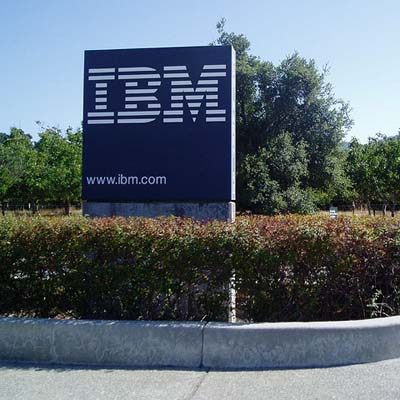 |
What's the call to action to
the partners that are not playing with Dell? You have got Cisco,
IBM and Lenovo coming at you hard now.
What's this IBM company you are
talking about? When was the last time you saw an IBM product?
Enough said.
Those are fine companies; there are
a lot of people who sell those products and they are expensive and
they are probably overdistributed. So we are providing innovation
and providing value and growth. |
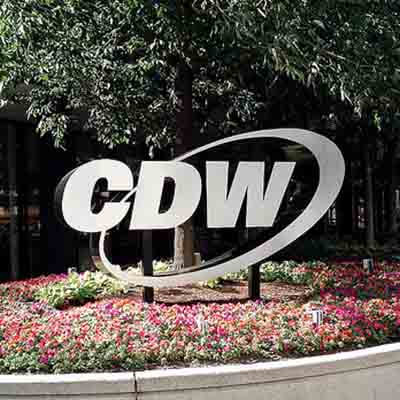 |
So of all the national
solution providers that you do business with right now, you don't
do business with the biggest one right now -- CDW. Why?
It's their choice, not ours. You
are going to have to ask them why they don't want to do business
with Dell.
CRN: Do you want to do
business with them?
Absolutely. You know, in fact we do
some business with them. I mean, you know, as we acquired one,
two, five, 40 different companies we have ended up on their line
card. It is, again, their choice. Better question for them. |
 |
You have stated Dell is not
going to build a public cloud. But when we talk to Dell partners,
more of them are telling us they are spending less on hardware and
spending more in cloud. What does that mean for Dell?
There has always been a fairly
dynamic evolution of the industry for the 30 years I've been doing
this. If you look at what any partner does within the various
parts of the industry, it keeps changing pretty dramatically.
Right? And now is no different.
We are selling tons of
infrastructure to all kinds of partners that are building what you
would think of as cloud. Cloud is a popular topic these days. |
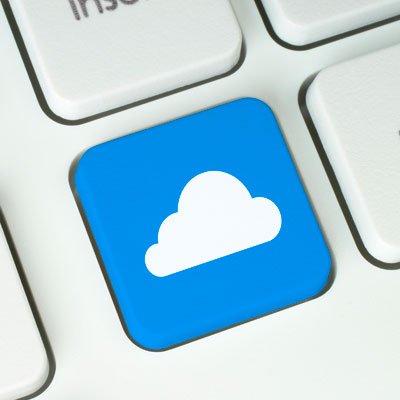 |
As you look at the billions
being invested in the public cloud by your competitors, what's the
impact of the cloud on Dell? Aren't you leaving money on the
table?
Here is the way I think of it. If
this was 1920, we'd be talking about electricity. 'What are you
going to do about electricity? It's going to be big. What's your
plan as vice president of electricity? Are you going to have an
electricity division? We need to be all over it. Electricity is
going to be big.'
Fast forward to 1995, the Internet.
'What are you going to do about the Internet? What's your Internet
strategy? What's your plan as the vice president of the Internet?
Do you have an Internet division?"
Where is electricity now? It's
everywhere. Where is the Internet now? It's everywhere now. That's
what the cloud is.
Dell has all these partners of all
shapes and sizes. Each one of them is trying to figure out how
they provide something valuable to customers. They are evolving in
different ways.
We sell more servers in North
America than anybody and we see where they go. A lot of them go to
direct customers, some go to service provider -- be it small,
medium, or large. Those companies represent a large and growing
mix of partner types with huge upside opportunities for Dell to
sell solutions to. |
 |
How much of Dell's recent
success can be attributed to the channel?
Of course it's because of the
channel. Everything is because of the channel. (laughter) It's
like the cloud and electricity. (laughter)
The channel is growing faster than
direct.
What I'm seeing is strong growth
and adoption from the channel partners. Our channel business is
growing at double-digit growth rates. |
 |
What is Dell's strategy for
tackling converged infrastructure?
It's not that hard to figure out
where this is headed.
Look at storage. The appliance in a
software-defined storage solution is in the server along with disk
drives. With software-defined networking, the appliance resides in
the server. With networking, there are a lot of network ports.
There is software-defined authentication. There is WAN
compression. Every part of the data center is moving to
software-defined. |
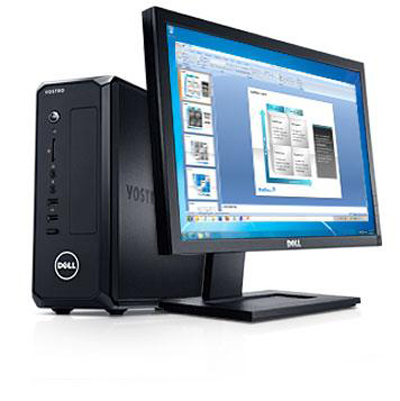 |
Does this suggest a
de-emphasis of your PC business as you try to build your converged
appliance and data center push?
We have a lot of investment in
virtual clients. We have invested heavily in our software
portfolio, helping customers automate their security system
management and data management.
We are unabashed supporters and
believers in the client PC business. We think it's OK to hug your
PC. We love the PC. We don't think the PC is dead. We are still
selling PCs. We still invest in PCs; we love PCs.
If other guys don't want to sell
PCs, we are happy to sell them. Thank you very much. We sell a lot
of PCs and that's great.
Now the PC is changing. We have a
virtual PC, we have tablet, we have convertibles. The business is
great. |
 |
What are the innovations Dell
is bringing to the table that trump HP and Cisco? What's the
competitive positioning of the 13G and the products you've got
coming against the competition?
If you look at the trajectory of
the 8G, 9G, 10G, 11, 12, 13 -- each turn of the crank gets better
and better. We are gaining more and more share. I can only guess
how our competitors are updating their next generation of
hardware.
We talked about products. From a
customer's viewpoint, I think we are becoming an omnichannel
company. We are figuring out how to align our resources. We are
now doing 35 percent plus of our commercial business with channel
partners. That number is growing fast.
I think we are extremely well
represented in the biggest product categories that matter -- data
center, security, client and systems management. Partners are
responding really well. |
 |
Speed is a theme we've been
hearing a lot about in terms of the pace in which you are able to
move now as a private company. Can you talk about what that speed
means to you and what you hope it translates into for Dell?
It's actually pretty simple. We sort
of look at it and say, how fast is the overall industry growing?
Are we growing faster? Check. How fast are the key competitors
growing? How fast are we growing? Check. I don't want to make it
overly complicated.
We do want to go even faster. We
want to gain share, be a better partner, and expand into adjacent
areas. You can make it more complicated than it really is, but
it's really pretty straightforward. |
 |
How has going private helped
you move faster in the market and within Dell as a company?
We started by asking ourselves,
'How do you simplify decision-making? How do you make approvals go
easier? How do you minimize conflicts and overlaps and make it
easier for people to get stuff done so they are not wasting time?'
There is also a lot of uncluttering
of internal processes that has made us faster and has streamlined
the company.
It goes back to what I was saying
earlier about public companies; we aren't thinking in those terms.
We aren't worried about, "Oh boy, I've got to report the results
in however many days." That's all gone. So for my time, that's 20
percent of my time just freed up and other people's as well. We
simplified a lot of the reporting and other stuff to make it less
complicated.
Now we have more time to focus on
our partners. It's stuff like that just makes you feel like you
are moving fast. |
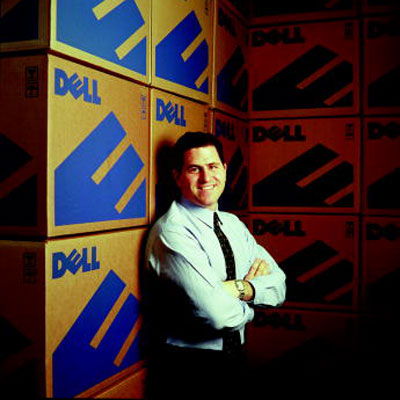 |
You are a pioneer. You started
out making PCs in a dorm room. You pioneered the direct sales
model for PCs. Where do you see Dell going from here? Where is the
vision for Dell today?
We obviously believe in providing
customers with choice. There isn't just one product, and there
isn't just one way to buy it. Clearly, the channel is the
prominent way that people like to buy things. We're all in with
the channel.
How does it evolve? Like I said
earlier. Product companies and companies that are involved in the
channel have to evolve to provide value. As the industry shifts to
service provider models, product models, Software-as-a-Service
model -- whatever it might be -- we focus on the ultimate set of
solutions that customers need to get things done.
We are investing to build those
solutions and making sure we have access to go get in front of
those customers. That's increasing with our channel partners. |
 |
Dell has always maintained an
open strategy, allowing anybody's software to run on your
hardware. Can you talk about the importance of keeping the Dell
stack an open environment?
Look at what we have done in
networking. That's absolutely the case. We've been early to
embrace software-defined with Cumulus and Big Switch and some
other unannounced partnerships.
And then if you look our footprint
with software-defined storage, we have relationships with
Microsoft Storage Spaces. Then there are VSANs we do business
with, companies such as Nexenta and Nutanix. In our OEM business,
we provide appliances to Pure Storage and a big, long list of
others. We are the go-to guys, so we continue to invest in that
business. |
 |
Talk about what Dell is doing
in software-defined data center that is bringing more value per
customer. Talk about the Dell proposition vs. Cisco.
I think if you look at the
long-term trajectory of the industry -- you know, comparing open
vs. closed -- it's pretty hard to bet against open over time.
Can closed win for short periods of
time or do very well for even medium periods of time? No question.
If you think about, take
networking, and ask yourself, 'What's a networking switch?' It's a
special-purpose processor and an ASIC and it has all these ports.
Well, can I put that ASIC in a server and run the processor load
in the x86 server. By combining the two together, you can do
things more efficiently.
If I used to have one virtual
machine and now I have 10 and 50, 100, maybe it makes sense to
combine switch and server together. The gross margins in switching
are rather high with the company you mentioned. |
 |
What becomes the big
opportunity in the software-defined space by doing more business
with Dell?
I think there is a great
opportunity for our customers to save. And Dell is just the sort
of company that will attack that aggressively. We have the IP and
we have 6,000 patents and we're going after the space
aggressively. We are No. 2 now in 40-Gig ports. You look at
products like the Z9500, where we are absolutely [the technical
leader] at the top of the market with 40-Gig switches, and Cisco
has nothing like it. We are technically out front. |
 |
You have been doing this for a
long time. Do you think it's more exciting now in the market than
it has ever been?
There is no question that our scale
and commitment to the channel has never been greater. I do think
with all the changes at Dell and the explosion in devices and the
shifts taking place in enterprise IT, [there are] huge, new
opportunities. I'm very excited about being a private company and
aggressively going after those opportunities. |
 |
What's the Dell value? You
bought a lot of different companies. What is the unifying sales
proposition going to market against the Ciscos and EMCs of the
world? I think this.
This is a big technical term but it's kind of Network Function
Virtualization. That's where you have software-defined everything.
And in that world, the server is the anchor tenant. And that's a
great world for us. And it's pretty hard to argue that's not the
overall trend in the industry. |
Copyright © 2014 The Channel Company, All rights
reserved.
|